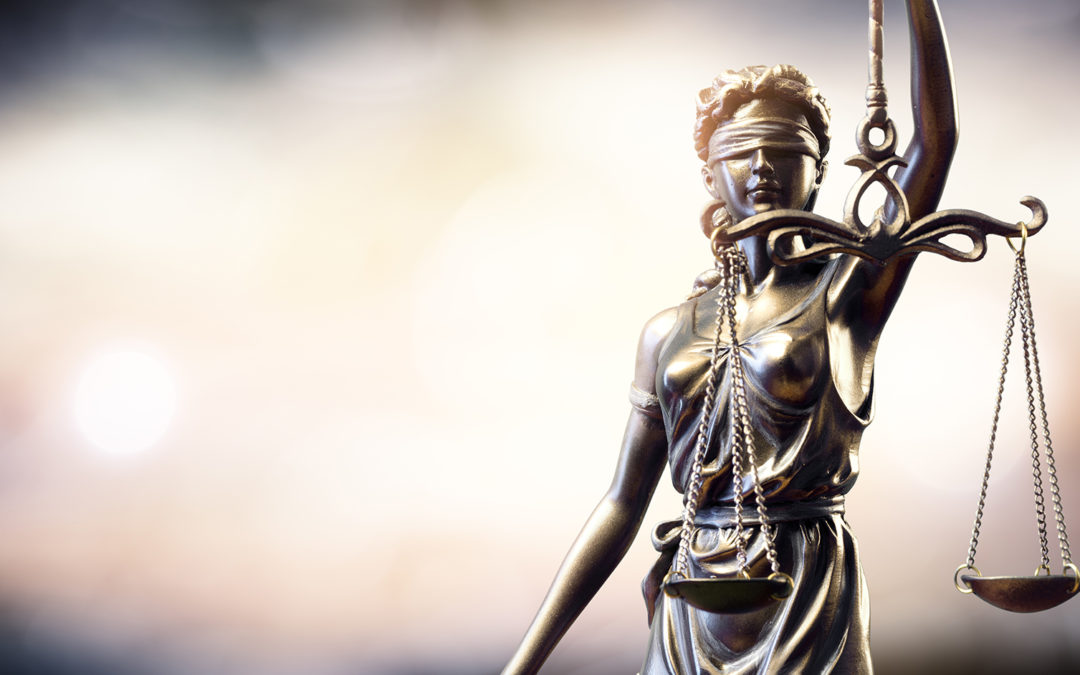
The prisoners stand with their hands bound behind their backs in the center of the only light, from an unseen source, in an otherwise dark room. The prosecutor paces back and forth listing off the charges, “Evil, thoughtless violence, wonton destruction, hatred, putting children in danger, treason, sedition, seeking power and control at all costs.”
What follows is perhaps the most haunting and, for me, memorable scene from Richard Donner’s 1978 film Superman. The prosecutor, played by Marlon Brando, looks to the council, portrayed as projections of very large heads, as they each shout the word, “Guilty!” This word is repeated several times as it echoes and reverberates through the room with ominous-sounding music and eerie sound effects in the background.
This iconic scene served to create a back story for the villains in the sequel. For me, it provides a visual for how I perceived the judgment of God as a young child. I would picture the bright light from an unseen source way above me, shining down, revealing everything. The prosecutor paces as he lists off everything I have done wrong, and echoing voices repeat the verdict over and over, “Guilty!” While this imagery faded as I grew older, the echoing voices returned every time I did something wrong.
Can you relate to this? Do those inner voices call you guilty? How do you respond to them?
My responses over the years ranged from “just live a holy life, stop messing up” to “it doesn’t matter what you do because God will forgive you.” On the one hand I was trying to live a perfect life on my own effort, and on the other hand I was excusing my sin and bad behavior as if it didn’t matter, pretending I wasn’t guilty.
In the first approach, I kept failing to do everything perfectly and would hear the voices, “Guilty!” In the second, I kept trying to tell myself that I was not guilty, but in the quietness of my heart the voices still sounded: “Guilty!”
The voices remained in both cases because, in truth, I was guilty. No matter how much I tried to do right or tried to deny my guilt, the guilt remained. And so did the echoing voices—“Guilty, guilty, guilty.”
Cut me some slack. That movie was a long time ago. I was young and naïve in my understanding of the gospel, after all. But the trouble is, the waffling between legalistically following rules and trying to excuse myself for sinful choices by saying I am not guilty—this remains even for an adult who follows Christ. I believe that if we are honest, we all struggle with this.
Maybe we have come to the point where we know and can say with confidence, “Salvation is all the work of God and there is nothing I can do to make myself right. I am totally dependent on the finished work of Jesus Christ, who alone can bridge the chasm between sinners and the holy God. There is nothing I can do.” Yet we may still live and behave as though we are trying to work—earn our way through obedience—into God’s graces, or else excuse our sin, saying, “I’m only human; nobody’s perfect.”
When people are brought before the court and accused of a crime, they plead guilty or not guilty. As the trial concludes, they will be declared guilty or not guilty. In the courtroom scene in the Superman movie, the prosecutor begins his statement by telling the council that the accusations are not “fantasy or made up” and finally urges that they “have to rule against them for the egregious charges.” Like the criminals in the movie, we are guilty—no matter how much we try to behave rightly, no matter how much we declare ourselves not guilty. It is into this ugly reality that the truth of the gospel must come.
The courtroom imagery is useful in describing Christ taking my punishment for me. However, Jesus did much more than allowing the Judge of all the earth to set me free from my guilt. Jesus also lived the perfect life you and I could never live, and credits believers with his own righteousness.
In Christ, I am made right with God because Jesus took the just punishment for my sins in my place. God sees me through Jesus and he credits me with the righteousness of Christ. “Because of him I have suffered the loss of all things and consider them as dung, so that I may gain Christ and be found in him, not having a righteousness of my own from the law, but one that is through faith in Christ—the righteousness from God based on faith” (Philippians 3:8-9, CSB). “All things” has to include my effort to follow the law. I must consider all things “as dung” and trust only in Christ who was punished for my sin and died that I might be justified before God.
The Superman courtroom scene highlights that dark and overbearing picture we so often live under of God as judge. We can trust in Christ for salvation, while continuing to picture God standing over us like some giant projected head shouting, “Guilty!” Of course, we desire to live holy lives, but we so quickly forget that our holiness is only through Christ living in us—not by our continued legalistic striving to be justified or our pretending to be not guilty.
No, our right standing with God is found only in Christ. The apostle Paul says it perfectly: “He made the one who did not know sin to be sin for us, so that in him we might become the righteousness of God” (2 Corinthians 5:21, CSB).
Rev. Kevin Skaret serves as pastor of Hope Lutheran Brethren Church in Barnesville, Minnesota.

